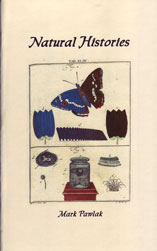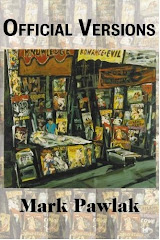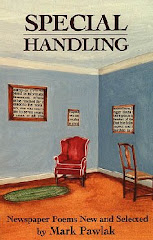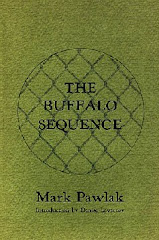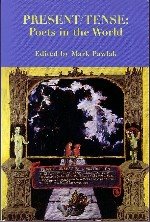
OPEN BOOK ALLIANCE
Authored by:
Peter Brantley & Gary Reback
One of the most significant developments in the history of publishing could be co-opted by the settlement of a class action lawsuit that creates an unprecedented monopoly and price fixing cartel. Just as Gutenberg’s invention of the printing press more than 700 years ago ushered in a new era of knowledge sharing, the mass digitization of books promises to revolutionize how we read and discover books. But a digital library controlled by a single company and small group of publishers would inevitably lead to higher prices and subpar service for consumers, libraries, scholars, and students.
A proposed settlement to a class action lawsuit settlement among Google, the Association of American Publishers (AAP), and the Authors’ Guild threatens to monopolize the access to and distribution and pricing of the largest digital database of books in the world, cornering much of the value of book digitization and reserving it to the private parties that have negotiated what is essentially both a new policy and a business model governing access to this material without input from appropriate government officials or the public. This is unacceptable.
Unlike the proposed settlement, there are proper, fair ways to make the promised digital future for books a reality. Today, we are launching the Open Book Alliance to insist that any mass book digitization and distribution effort be open and competitive. It must be undertaken in the open, grounded in sound public policy, and mindful of the need to promote long-term benefits for consumers rather than isolated commercial interests.
A wide range of professional, academic, and corporate organizations have significant concerns about the settlement proposal. True, we all fundamentally support the effort to expand the availability of knowledge through the digitization of books. But the proposed settlement, in substance and process, is not the way to do it.
By bringing together diverse organizations such as Amazon, the American Society of Journalists and Authors, the Council of Literary Magazines and Presses, the Internet Archive, Microsoft, the New York Library Association, Small Press Distribution, the Special Libraries Association, and Yahoo!, the Open Book Alliance will counter the special deal the proposed settlement creates for Google and the parties that have agreed to its proposed settlement, and will promote fair and flexible solutions aimed at achieving a more robust and open system.
Many startling challenges to copyright and competition policy lie buried in the settlement’s 300+-pages. The Open Book Alliance will inform policymakers and the public about the serious legal, competitive, and policy issues in the settlement proposal, including:
The settlement is bad for consumers and book-lovers – It deliberately thwarts competition in the emerging e-books market, creating a digital book monopoly that will inevitably lead to fewer choices and higher prices for consumers of digital books. It would allow a group of erstwhile competitors to collectively set prices and leave Google as the only company with a the right to copy, display or sell digital versions of orphan works (books for which authors or rights holders cannot be identified or located). Consumers would be better served by a competitive market for digital books that is available to everyone on non-discriminatory terms. The settlement also contains no privacy commitments to ensure that Google doesn’t use its awareness of what books people are reading to make unfair profit, or doesn’t share its intimate knowledge with commercial interests or governments. Finally, the settlement is carefully structured to ensure that all of the digital content will be available to Google and Google's search engine. This will enhance and reinforce Google's already dominant market power in the internet search market while making the digital books less available and less findable by users of other search engines.
The settlement is bad for libraries and schools: While a handful of large and well-funded university libraries participated in the Google book-scanning effort, many other educational institutions and libraries will be forced to pay monopoly prices for access to a wide swath of knowledge, straining already-stretched budgets and creating a system of haves and have-nots in our nation’s education system. Community libraries would get at a single terminal to Google’s private book database, and libraries serving our nation’s children in K-12 schools would get absolutely nothing. The settlement widens the digital divide by limiting access to digital books in financially hard-hit communities that have budget-constrained libraries.
The settlement is bad for authors and small publishers: Unless they act to opt out of the proposed settlement by Google’s deadline, authors and other writers lose rights to the fruits of their labor—a future in which they have no negotiating rights for the value of their work. Moreover, the proposed settlement would line the pockets of a handful of lawyers, who collectively would receive more than $45 million, at the expense of millions of authors and small publishers upon whose creativity and hard work the private book monopoly would be built.
The settlement sets a dangerous and unprecedented process precedent. The proposed settlement far exceeds the bounds of a typical legal settlement. It privatizes important copyright and public policy decisions. It abuses class action procedure to create an exclusive joint venture between Google, AAP and the Authors’ Guild, strengthening Google’s dominance in search and search advertising and creating a private monopoly for the sale of digitized books.
If you are interested in joining the Open Book Alliance or if you are interested in receiving regular updates on this important issue, contact us through our Web site. And stay tuned to this space for more information as the Open Book Alliance fights to make the promise of digital books a reality that benefits all, not just a select few.

